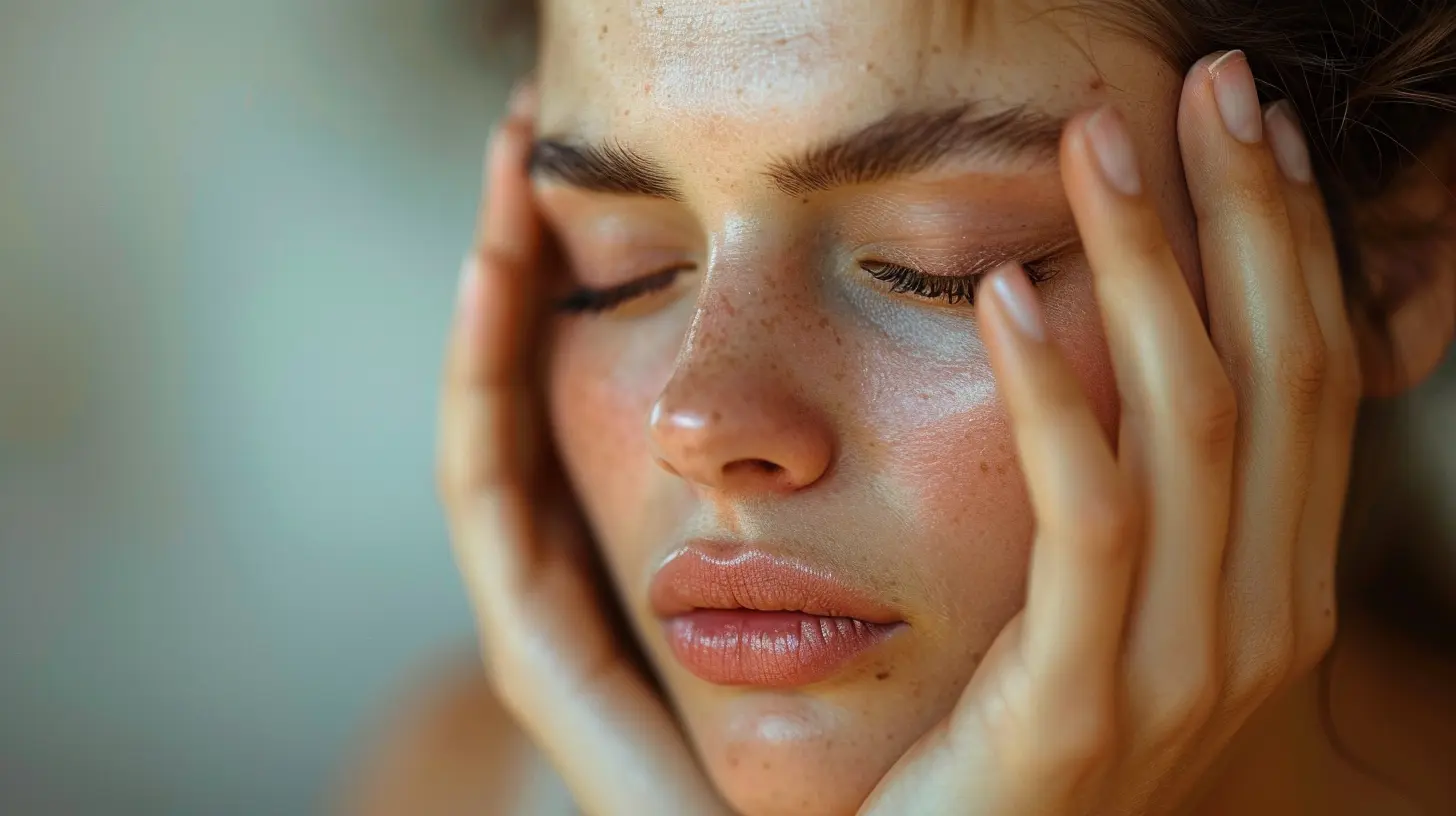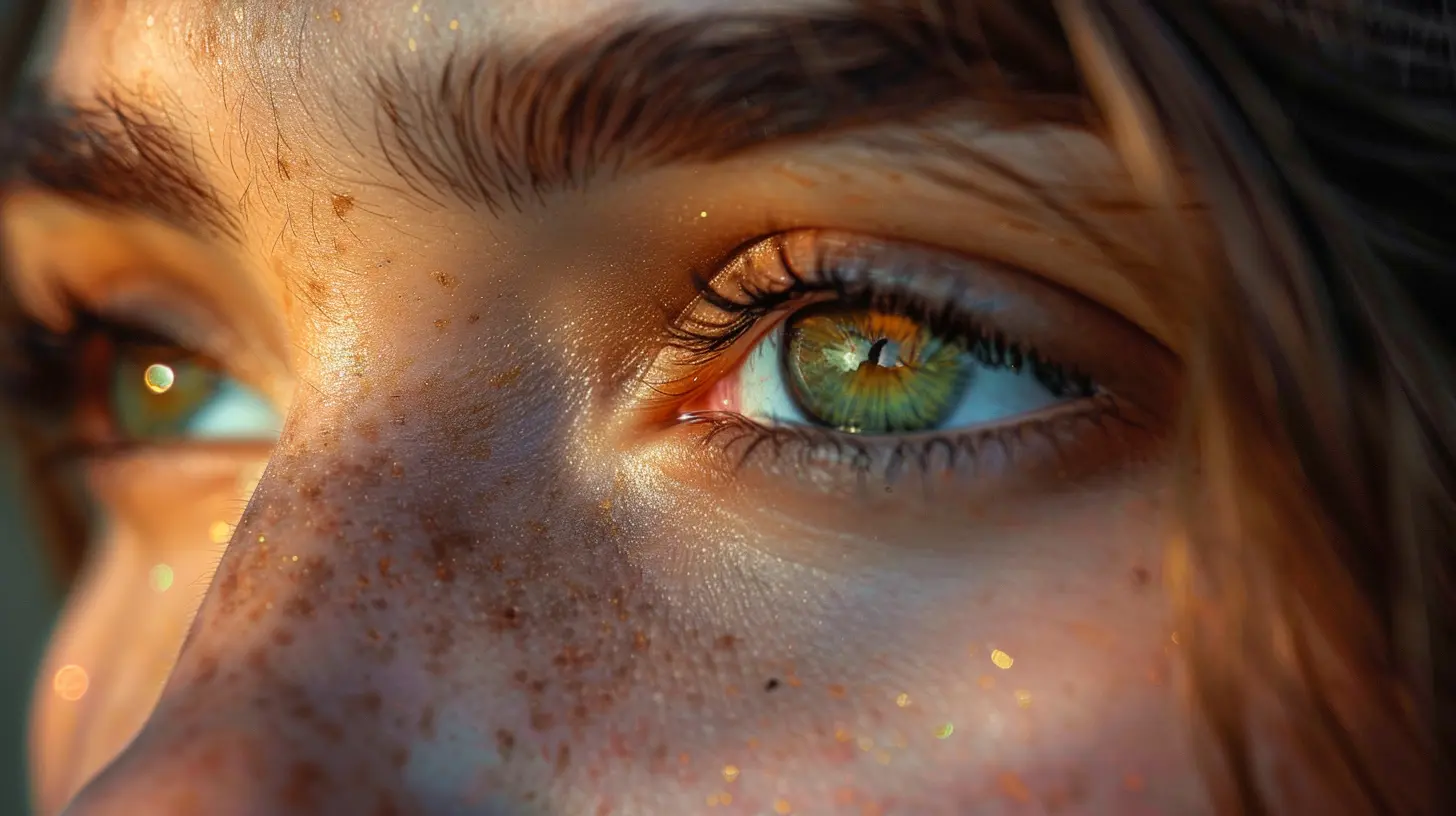Stress and Your Skin: How Mental Health Impacts Your Glow
13 October 2025
Let’s face it—modern life can be a pressure cooker. Between deadlines, responsibilities, and the chaos of everyday life, it's no surprise that stress is something most of us wrestle with regularly. But what if I told you that mental stress doesn't just weigh on your mind—it shows up on your skin too?
Yep, that’s right. The next time you notice a breakout, dull complexion, or a sudden rash, you might want to look beyond your skincare routine and take a peek at what’s happening in your headspace. Stress and your skin are more connected than you might think.
In this article, we’ll break down exactly how your mental health influences your skin’s health, appearance, and overall “glow factor.” More importantly, we’ll chat about what you can do to protect your skin while supporting your mental well-being.
How Stress Hijacks Your Skin's Glow
Imagine your skin as a mirror. Whatever’s happening inside your body—physically or emotionally—often reflects right back at you. Stress activates a whole chain reaction in your body that ends up sabotaging your skin.The Science-y But Simple Version
Here’s what happens behind the scenes:- You’re stressed.
- Your brain sounds the alarm and releases cortisol (aka the stress hormone).
- Cortisol tells your oil glands to ramp things up.
- More oil = clogged pores = hello, breakouts!
But that’s not all. Stress also messes with your skin’s ability to retain moisture, delays healing, and may even trigger or worsen inflammatory skin conditions like eczema, psoriasis, and rosacea.
So basically, stress turns your skin into a drama queen—sensitive, reactive, and anything but glowing.
Acne, Rashes, and Wrinkles—Oh My!
Let’s dig into some common skin issues that stress tends to stir up.1. Breakouts and Acne Flair-Ups
If your face seems to throw a tantrum every time you’ve got a big presentation or your personal life feels like a soap opera, you’re not imagining things. Stress acne is real.Those stress hormones boost sebum (oil) production, and when that oil mixes with dead skin cells and bacteria? Boom—breakout city.
And unlike teenage acne, these pesky adult pimples often show up around your jawline and cheeks.
2. Dullness and Dehydration
Ever looked in the mirror after a sleepless, nerve-racking week and thought, “Why do I look like a potato?” Stress can suck the life right out of your skin.Cortisol weakens the skin barrier, making it harder for your skin to hold onto moisture. No moisture? No glow. Your skin ends up looking dull, rough, and tired.
3. Eczema, Psoriasis, and Rosacea
If you have any pre-existing skin conditions, stress can be like adding fuel to the fire. These conditions are inflammatory by nature, and stress is a known inflammation booster.So, flare-ups become more frequent and more intense when you're mentally overwhelmed.
4. Signs of Aging
Here’s a plot twist—stress may speed up the aging process. Chronic stress results in ongoing inflammation and increased oxidative stress (those pesky free radicals), which can break down collagen and elastin.Translation? Fine lines, wrinkles, and saggy skin start to show up ahead of schedule.
The Mind-Skin Connection (It’s Not All in Your Head)
There’s an actual term in science for how your mind and skin communicate: the “brain-skin axis.” Fancy, right?Your skin is connected to your nervous system and endocrine system (hormonal system). So, when your mental health takes a hit, your skin gets the memo.
Your Emotions = Chemical Signals
When you're constantly anxious, sad, or under pressure, your body interprets those emotions as stress. It releases not just cortisol, but other chemical messengers like adrenaline and neuropeptides, which have a major impact on skin cells.It's kind of like your skin goes into panic mode—its defenses get wobbly, healing slows down, and inflammation starts brewing.
The Vicious Circle: Stress Hurts Skin, Bad Skin Causes Stress
Let’s not overlook something important: this connection works both ways.Stress negatively affects your skin, yes. But skin issues can make you even more stressed. It’s a vicious cycle.
Ever felt your confidence dip because of breakouts or skin irritation? You’re not alone. Skin problems can seriously mess with self-esteem, leading to social anxiety, depression, and—you guessed it—more stress.
It becomes a hamster wheel where your mind and skin feed off each other, and not in a good way.
Alright, So What Can You Do About It?
Good news—while you can’t totally eliminate stress (who can?), you can definitely manage how it affects your skin. Here’s how to break the cycle and get your glow back.1. Build a Skin-Loving Routine
First things first, don’t abandon your skincare routine during stressful times. Keep it simple and gentle.- Use a mild cleanser that doesn’t strip your skin.
- Hydrate with a good moisturizer.
- Don’t pop pimples (you heard me).
- Use SPF. Even stressed-out skin needs sun protection.
Avoid harsh ingredients when your skin feels reactive—think alcohol-heavy toners or gritty exfoliants. Your skin’s already going through it. Be kind to it.
2. Chill Out Your Mind, Glow Up Your Skin
This is where the real magic happens. Managing stress can do wonders for your face. And no, it doesn’t mean quitting your job or flying to Bali (although that sounds amazing).Try this instead:
- Meditation: Just 10 minutes a day can lower cortisol.
- Deep breathing: Sounds basic, but it works. Inhale for 4, hold 4, exhale for 4. Repeat.
- Exercise: Moves your body, improves circulation, reduces stress.
- Sleep: Aim for 7-9 solid hours. Beauty sleep is real, folks.
3. Eat Like You Love Your Skin
Stress eating is a thing. But those chips and cookies won’t help your glow.Instead, try fueling your body with skin-loving foods:
- Omega-3-rich foods (like salmon or walnuts) to reduce inflammation.
- Antioxidant-packed fruits (berries, oranges) to fight free radicals.
- Leafy greens and colorful veggies for vitamins and minerals.
Water, of course, is essential. Hydrate like it’s your job.
4. Talk It Out
Mental health isn’t something to tough out alone. Talking to a friend, therapist, or counselor can ease emotional burdens and help you develop long-term coping strategies. That inner calm will eventually show on your skin.Bonus: Therapy helps you break negative thought cycles (like obsessing about your skin), which helps reduce stress. Total win-win.
Natural Remedies and DIY Tricks (with Caution)
Sometimes, a little pampering helps soothe both your skin and your soul. Here are a few things that might help:- Aloe vera gel – calming and anti-inflammatory
- Green tea mist – antioxidants to perk up dull skin
- Chamomile or lavender tea – to calm your nerves
But remember, not everything that’s natural is safe for every skin type. Always patch test first—and if you’re unsure, talk to a dermatologist.
When to See a Pro
If your skin’s sending SOS signals—constant breakouts, rashes, or itchiness that won’t quit—it’s time to get professional help.A dermatologist can help identify whether it’s stress-related or something else. And if your mental health feels heavier than a rough patch, please don’t hesitate to reach out to a mental health specialist.
There’s no shame in needing help. You deserve to feel good—inside and out.
You’re Not Alone (And You’re Not Broken)
Let’s be real: We all have moments when stress takes over and our skin throws a fit. That doesn’t mean there’s something wrong with you. It means you’re human.The connection between stress and your skin isn't just a beauty issue—it's a wellness thing. And when you start looking at self-care as a full-body, inside-out project, everything starts to shift. Your skin doesn’t need perfection—it needs attention, kindness, and a little grace.
Remember, your skin hears everything your mind says. Be gentle with both.
Final Thoughts
So, next time your forehead breaks out or your cheeks get blotchy, take a step back—not just to adjust your skincare, but to check in with yourself.Are you overwhelmed? Anxious? Exhausted?
Your skin might be the first one to know.
By managing stress, nurturing your mental health, and treating your skin with a little extra love, you’re not just chasing a glow—you’re building a lifestyle that nourishes you from the inside out.
Because the most beautiful glow doesn’t come from a jar—it comes from balance, peace, and self-care.
all images in this post were generated using AI tools
Category:
Skin CareAuthor:

Angelo McGillivray
Discussion
rate this article
1 comments
Farrah James
Stress significantly affects skin health, often manifesting as breakouts or dullness. Prioritizing mental wellness through mindfulness, exercise, and proper self-care not only rejuvenates the mind but also enhances skin vitality. A holistic approach is key to achieving that radiant glow.
October 22, 2025 at 2:43 AM

Angelo McGillivray
Absolutely! Prioritizing mental wellness is essential for skin health. A holistic approach can truly enhance your glow.


